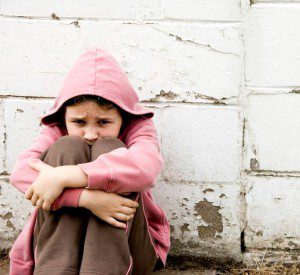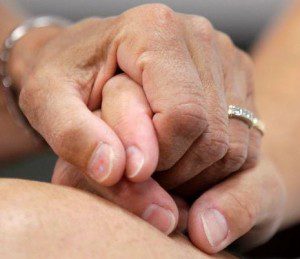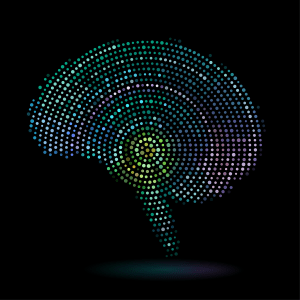Repeated Recall
Eyewitnesses to a crime or other incident often recall that event dozens of times while waiting for a trial that...
Read More
Similarity-Attraction Effect
Similarity-Attraction Effect Definition The similarity-attraction effect refers to the widespread tendency of people to be attracted to others who are...
Read More
Reconstructive Memory
Reconstructive memory refers to a class of memory theories that claim that the experience of remembering an event involves processes...
Read More
Social Exclusion
Social Exclusion Definition Social exclusion refers to keeping an individual or group out of social situations. It typically occurs in...
Read More
Presence-of-Counsel Safeguard
The presence-of-counsel safeguard, provided by the Sixth Amendment of the United States Constitution, guarantees every defendant the right to an...
Read More
Social Support
Social Support Definition In general, social support refers to the various ways in which individuals aid others. Social support has...
Read More
Postevent Information
Human memory, however accurate generally, is not a perfect processing system. Over time, our memory becomes less accurate, primarily for...
Read More
Social Value Orientation
People differ in how they approach others. Some people tend to approach others in a cooperative manner, whereas other people...
Read More
Popout Effect
The “popout” effect refers to the subjective experience of witnesses who report virtually immediate or apparently automatic recognition of the...
Read More
Optimality Hypothesis
As originally proposed by Kenneth Deffenbacher, the optimality hypothesis states that the likelihood of obtaining statistically reliable positive correlations of...
Read More
Transactive Memory
Transactive Memory Definition An important function of relationships is information sharing. People often look to their interpersonal and work relationships...
Read More
Neil v. Biggers Criteria
In its 1972 ruling in Neil v. Biggers, the U.S. Supreme Court outlined five criteria that should be used in...
Read More
Unrequited Love
Unrequited Love Definition Unrequited love refers to instances when one person (the would-be lover) feels romantic, passionate feelings for an...
Read More
Conformity in Eyewitness Reports
Eyewitness research has repeatedly shown that exposure to postevent information can affect a witness’s ability to accurately report details of...
Read More
Civil Commitment
Civil commitment is the legal process under which individuals with mental illness may be subjected to involuntary hospitalization. This research...
Read More
Cross-Race Effect
The cross-race effect (CRE, also referred to as the own-race bias or other-race effect) is a facial recognition phenomenon in...
Read More
Behavior Analysis Interview
The behavior analysis interview (BAI) is a set of 15 predetermined standardized questions designed to elicit differential responses from innocent...
Read More
Double-Blind Lineups
A double-blind lineup refers to a lineup procedure in which both the witness and the lineup administrator are unaware of...
Read More
Academic Achievement
Academic achievement assessment in school psychology is a critical and multifaceted practice essential to understanding and enhancing the educational journey...
Read More
Crisis and Hostage Negotiation
Since the 1970s, some clinical psychologists (often referred to as operational psychologists) have become more actively involved in the resolution...
Read More
Elderly Eyewitnesses
As the potential pool of elder witnesses continues to expand with the aging U.S. population, the age group referred to...
Read More
Adaptive Behavior Assessment
Adaptive behavior assessment stands as a pivotal domain within the field of school psychology, playing a vital role in understanding...
Read More
Critical Incidents
This article examines the causes of critical incident stress in law enforcement officers. It discusses how, by identifying critical incident stressors...
Read More
Estimator and System Variables
A distinction between estimator and system variables is made in the eyewitness research literature between two categories or types of...
Read More
Applied Behavior Analysis
This article on applied behavior analysis (ABA) in school psychology provides a comprehensive overview of this evidence-based approach’s critical role...
Read More
Detection of Deception in Adults
Deception is defined, for the purposes of this article, as a successful or unsuccessful deliberate attempt to create in another...
Read More
Exposure Time
When assessing the potential of an eyewitness, among the first things an investigator has to decide is whether or not...
Read More
Authentic Assessment
Authentic assessment in school psychology is a multifaceted approach to evaluating student learning that aligns assessment practices with real-world contexts...
Read More
Detection of Deception: Detection Wizards
Wizards of deception detection are rare individuals who achieve scores of 80% or higher on at least two of three...
Read More
Eyewitness Descriptions Accuracy
Police investigators will frequently request that witnesses to a crime provide verbal descriptions of the alleged perpetrator. Such descriptions provide...
Read More
Behavioral Assessment
Behavioral assessment plays a pivotal role in the field of school psychology, contributing significantly to the understanding and support of...
Read More
Detection of Deception in Children
The credibility and reliability of children’s testimony are particularly important in instances where children are called on as primary witnesses...
Read More
Eyewitness Identification: Effect of Disguises
People who wear a disguise are attempting to conceal their appearance or change how they look. Culprits may wear any...
Read More
Bias in Testing
Bias in testing represents a critical concern within the realm of school psychology, as it profoundly influences the accuracy and...
Read More
Detection of Deception in High-Stakes Liars
High-stakes lies occur where there are large positive consequences of getting away with the lie or large negative consequences of...
Read More
Eyewitness Identification: Field Studies
A substantial base of laboratory research is now available to aid our understanding of eyewitness identification processes and to support...
Read More
Buros Mental Measurements Yearbook
The Buros Mental Measurements Yearbook (MMY) holds a central and indispensable role in the field of school psychology. This article...
Read More
Detection of Deception: Cognitive Load
Cognitive load interview protocols are designed to make interviews more demanding for suspects. This increased demand has a greater effect...
Read More
Eyewitness Identification: General Acceptance
This research paper focuses on the degree to which experts and others are persuaded that each of a number of...
Read More
Career Assessment
Career assessment plays a pivotal role in the field of school psychology, serving as a cornerstone for guiding students’ educational...
Read More
Detection of Deception: ERP
P300 is a brain wave derived from the electroencephalogram (EEG), which has recently been used as a novel information channel...
Read More
Eyewitness Memory: Lay Beliefs
Lay beliefs about factors that influence the reliability of eyewitness testimony have been assessed with a variety of survey and...
Read More
Classroom Observation
Classroom observation, a cornerstone of school psychology, offers vital insights into student experiences. This article explores its historical roots, theoretical...
Read More
Detection of Deception: MRI
Traditional means of lie detection, such as the polygraph, rely on measurements of peripheral nervous system (PNS) activity. Recent advances...
Read More
Facial Composites
When a crime has been committed and the identity of the perpetrator is unknown, eyewitnesses are often asked to attempt...
Read More
Criterion-Referenced Assessment
Criterion-referenced assessment plays a pivotal role in the field of school psychology, offering a precise means to evaluate students’ performance...
Read More
Detection of Deception: Nonverbal Cues
Trying to find a tell-tale sign of deceit (a “Pinocchio’s nose”) in human nonverbal behavior has been the subject of...
Read More







